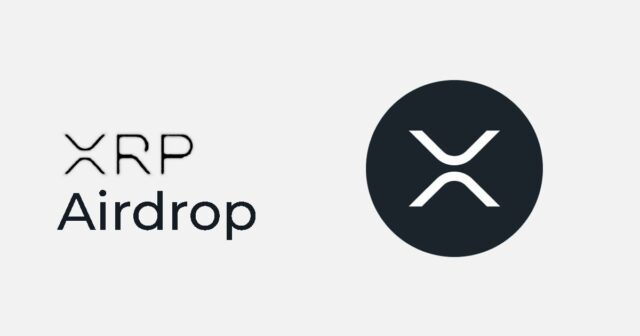The Ripple Labs’ legal battle with the U.S. Securities and Exchange Commission (SEC) has been a focal point in the cryptocurrency world, casting uncertainty over the future of one of the leading digital assets, XRP. As a prominent player in the Blockchain industry, Ripple’s dispute with the SEC has far-reaching implications that extend beyond the company and its native cryptocurrency. The outcome of this lawsuit has the potential to reshape the regulatory landscape for digital assets and influence investor sentiments toward cryptocurrencies at large.
This comprehensive analysis delves into the origins of the SEC’s lawsuit against Ripple and the institutional crypto trading platform, examining the allegations and legal intricacies that brought the case to the forefront. Furthermore, you will learn the profound impact of the ongoing lawsuit on the XRP crypto market, particularly regarding price volatility, market sentiment, and potential delisting concerns on various crypto exchanges.
The SEC Lawsuit against Ripple
The SEC lawsuit against Ripple cryptocurrency stems from the regulatory agency’s investigation into whether the sale of XRP, Ripple’s native cryptocurrency, constitutes an unregistered security offering. The U.S. Securities and Exchange Commission officially filed the lawsuit in December 2020, marking a significant moment in the cryptocurrency industry.
The SEC’s core argument is that Ripple and its co-founders, Chris Larsen and Brad Garlinghouse, allegedly conducted an ongoing unregistered securities offering by selling XRP tokens to investors over the years. According to the SEC, XRP should be classified as a security under existing U.S. securities laws due to the nature of the token’s issuance and distribution.
The distinction between a security and a utility token is critical as it determines a cryptocurrency’s regulatory requirements. Securities fall under strict federal regulations, requiring issuers to register their offerings with the SEC and comply with various reporting requirements. On the other hand, utility tokens typically serve a specific purpose within a Blockchain network and may not be subject to the same level of regulation.
Ripple has consistently maintained that XRP is not a security but a utility token, primarily utilized for facilitating cross-border payments and remittances through its RippleNet network. The company argues that XRP’s utility distinguishes it from traditional securities, such as stocks or bonds, and hence should not be regulated as one.
The SEC’s lawsuit against Ripple has had profound implications for the cryptocurrency market. After the lawsuit’s announcement, several major cryptocurrency exchanges decided to delist or suspend XRP trading on cryptocurrency platforms to mitigate potential legal risks. This led to a significant drop in XRP’s market value and heightened uncertainty among investors and market participants.
As the legal battle unfolds, the cryptocurrency industry and the SEC closely observe the court proceedings and developments surrounding the case. This lawsuit’s outcome is expected to clarify the regulatory treatment of cryptocurrencies, potentially setting a precedent for other Blockchain projects facing similar scrutiny.
Impact on XRP Crypto Market
The SEC lawsuit against Ripple has significantly impacted the XRP crypto market, causing widespread repercussions for the cryptocurrency and its investors:
The delistings had a cascading effect on XRP’s liquidity and market accessibility, making it harder for investors to buy Ripple. Reduced availability on major exchanges limited the trading options for XRP holders, further affecting its price dynamics.
Predictions for XRP’s Future
Predicting the future of any cryptocurrency on a cryptocurrency trading platform, including XRP, is inherently challenging due to the crypto market’s dynamic and rapidly evolving nature. Additionally, the outcome of the SEC lawsuit against Ripple has a critical role in shaping XRP’s future:
It is essential to cautiously approach predictions on cryptocurrency trading platforms, as the market is subject to sudden and unpredictable shifts. As with any investment, potential XRP investors should conduct thorough research, consider multiple perspectives, and seek advice from financial professionals before making decisions.
Final Thoughts
The Ripple Lawsuit with the SEC and its impact on XRP crypto is a reminder of the dynamic and complex nature of the cryptocurrency industry. The legal battle highlights the need for clear regulatory guidelines and compliance measures within the Blockchain space.
As the case continues to unfold, the Ripple forecast remains uncertain. The lawsuit’s outcome will likely have profound implications for Ripple, XRP investors, and the broader cryptocurrency market. Investors and stakeholders should closely monitor legal developments and regulatory decisions to make informed decisions about XRP and other digital assets.
This lawsuit is a critical lesson for Blockchain projects and regulatory authorities. It emphasizes the importance of transparent communication, compliance with existing regulations, and proactive engagement with regulatory bodies to mitigate potential legal challenges.
Amid the uncertainty, the cryptocurrency industry continues to evolve, and innovative solutions are being developed to address existing challenges. Regardless of the outcome of the Ripple-SEC lawsuit, the fundamental technology behind XRP and other cryptocurrencies has the potential to transform various sectors, including finance and remittances.
As with any investment, individuals must conduct thorough research, assess their risk tolerance, and seek professional advice when entering the cryptocurrency market. While there are opportunities for significant gains, there are also inherent risks, and investors should approach the market with caution and a long-term perspective.
The world of cryptocurrencies on institutional crypto trading platforms is continuously changing, and new developments will shape the industry’s future beyond the current events surrounding Ripple and XRP. As space matures and regulations evolve, the potential for Blockchain technology to drive innovation and disrupt traditional industries remains a compelling prospect.
While the Ripple lawsuit is crucial for XRP and the broader crypto market, keeping an eye on the bigger picture of Blockchain technology’s transformative potential is essential. As the industry evolves, responsible and informed participation will play a pivotal role in realizing the true promise of cryptocurrencies and decentralized finance.




